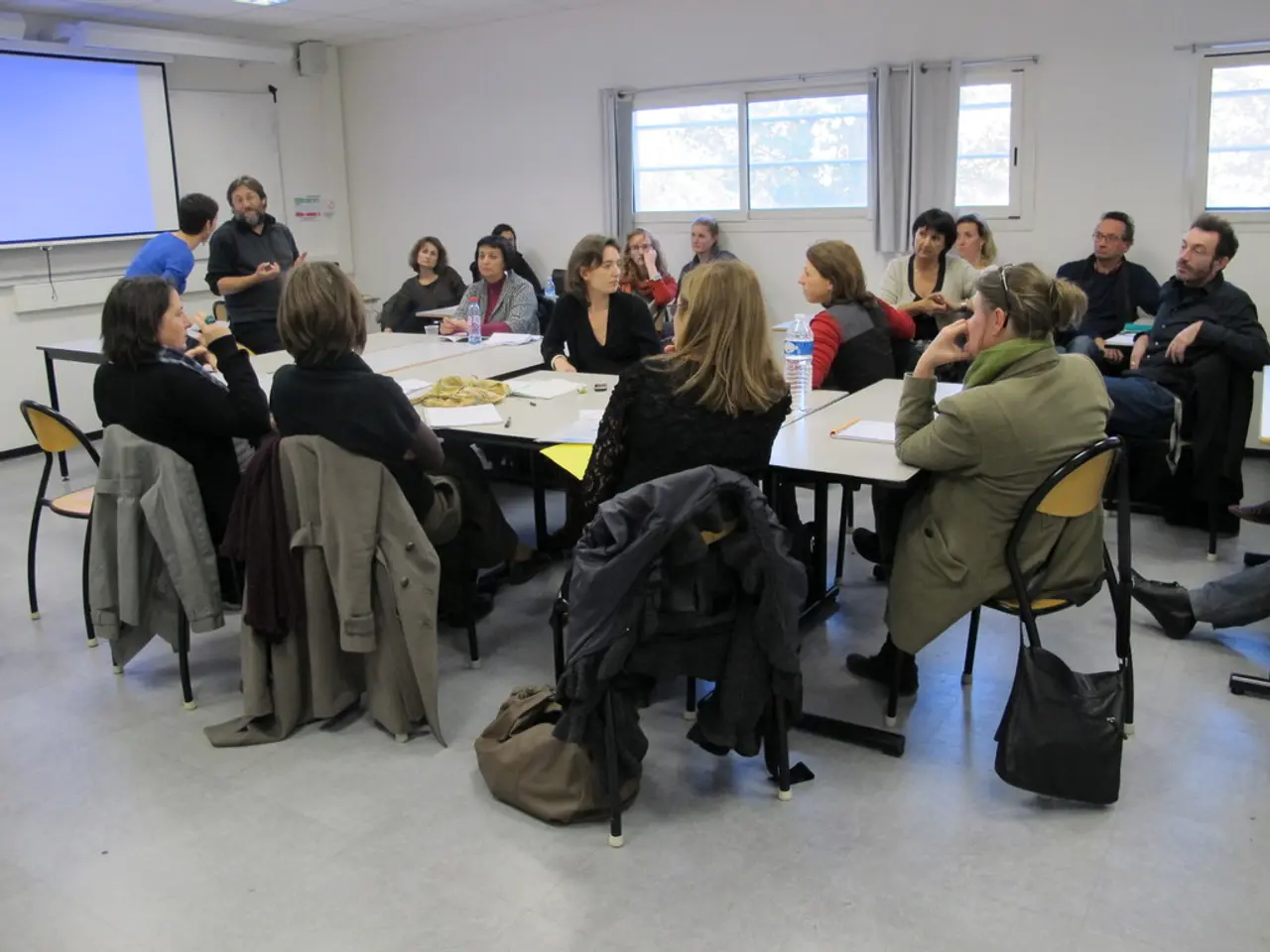North Korea-South Korea's Military Agreement to Be Restored, as Promised by Lee
South Korea Seeks to Revive 2018 Military Agreement with North Korea
The 2018 September 19 Inter-Korean Military Agreement, which aimed to reduce military tensions along the border, is currently in a state of partial and cautious revival under the administration of South Korean President Lee Jae-myung [3]. This marks a shift from periods of stagnation and increased tensions.
Relations between North and South Korea soured after the original agreement due to political changes, renewed North Korean missile tests, and military provocations. The current South Korean leadership is showing a renewed willingness to pursue peace and military dialogue with the North, instructing government ministries to implement past agreements [3].
However, North Korea's nuclear weapons development and related international sanctions remain significant impediments to full normalization of military agreements [1]. North Korea sees its nuclear program as vital for regime survival, which complicates denuclearization talks and practical military agreements.
Kim Jong Un's government has made clear it has no intention of giving up its nuclear weapons [2]. Kim Yo-jong, Kim Jong Un's sister, reiterated North Korea's lack of immediate interest in reviving negotiations with Washington and Seoul, citing an upcoming joint military exercise between the allies as proof of continued hostility [2].
The Korean Peninsula was divided into a U.S.-backed, capitalist South and a Soviet-supported, socialist North after Japan's defeat in World War II. The separation was cemented by the devastating 1950-53 Korean War.
Lee Jae-myung has announced plans to revive the 2018 military agreement with North Korea to ease border tensions. He affirmed South Korea's respect for North Korea's current system and stated that it will not pursue any form of unification by absorption or engage in hostile acts [2].
Meanwhile, in an effort to improve relations with South Korea, Japanese Prime Minister Shigeru Ishiba has acknowledged Japan's wartime aggression and shown empathy towards Asian victims [1]. Lee is scheduled to meet Ishiba before his meeting with U.S. President Donald Trump.
Analysts suggest North Korea remains focused on its alignment with Russia, sending troops and military equipment to support Russia's invasion of Ukraine [1]. In a speech marking Korea's liberation, Kim Jong Un praised the ties with Russia, but made no mention of Washington or Seoul [1].
Denuclearization is a complex and difficult task, according to Lee Jae-myung, but inter-Korean and U.S.-North Korea dialogue, as well as international cooperation, will help approach a peaceful resolution [3]. South Korea remains committed to an international push to denuclearize North Korea and has urged Pyongyang to resume dialogue with Washington and Seoul.
In summary, the 2018 military agreement between North and South Korea has not been fully operational in recent years due to political changes and renewed tensions. The current South Korean government’s approach signals a possible thaw and cautious restoration of cooperation. However, North Korea’s nuclear weapons development and related sanctions keep the security situation fragile and affect the peace process dynamics. The situation is fluid, influenced by leadership changes on both sides and broader regional and international security factors.
The South Korean President, Lee Jae-myung, has announced a revival of the 2018 military agreement with North Korea, a move aimed at reducing border tensions [2]. This decision is part of South Korea's diplomatic efforts to improve relations, which also includes its general approach towards respecting North Korea's current system [2]. However, North Korea's continued development of nuclear weapons and the associated international sanctions remain significant challenges to achieving peace [1].
The Korean Peninsula's geopolitical landscape is influenced by alliances and conflicts, as evidenced by the region's divided history and ongoing military tensions [1]. For instance, the current North Korea-Russia alliance, with troops and military equipment being sent to support Russia's invasion of Ukraine, is a notable factor [1].
The revival of the military agreement between the two Koreas is a step towards addressing the globe's general-news agenda, which involves high stakes diplomacy, politics, defense, and the fraught issue of denuclearization [3]. The international community, including South Korea, is committed to finding a peaceful resolution to the North Korea nuclear crisis, a resolution that requires dialogue, cooperation, and diplomatic travel among key players [3].






